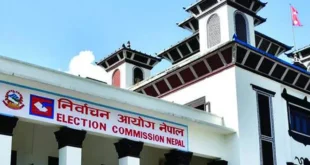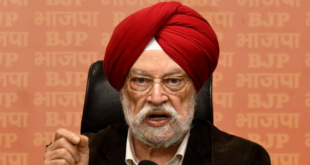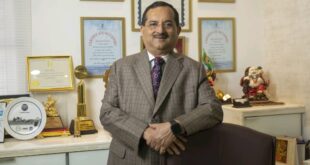 Dr. Seema Javed
Dr. Seema Javed
Over 50 countries of the world go to the polls in 2024 this year including India. These are are home to half the planet’s population. From Russia, Taiwan and the United Kingdom to India, El Salvador and South Africa, etc. How climate and local weather systems are playing an important role in the ongoing elections is worth noting.
In India there is extreme heatwave across large parts during the ongoing election process, as impacts of climate change worsen local weather systems. This has been the warmest decade on record, with temperatures rising above 40 degree Celsius.
The country is grappling with record-setting heatwaves where 90.7 million people are expected to vote in the world’s largest democracy. Indian elections have been spread between April 19 to June 1, 2024 . The First stage of elections on 19th April and second stage of election on 26 th April has been conducted and the third stage of elections is going to poll today i.e.7th May. Now 13th May, 20Th May, 25th May and 1st June the rest of the phases will continue later. The April has already set new record-breaking trends with one of the longest spells of heatwave extending up to 15 days.

- The absence of pre-monsoon showers and thunderstorms has impacted temperatures. There is a cumulative countrywide deficit of 20% pre-monsoon rainfall
- Scientists explain that the effects of human-caused climate change will be intensified by El Niño becauseEl Niño are predicted to induce record-breaking spikes in global temperatures.
- The El Niño in 2015 which led to 2016 being the hottest year on record, while the super El Niño in 2023 superseded the previous one as the warmest year.
- According to India’s Met department, the persistence of anticyclones over Oman and adjoining areas and parts of peninsular India impacted the formation of any weather systems, therefore sea breeze was cut-off over eastern states of Odisha and West Bengal, leading to soaring temperatures.
- NOAA has also warned that 2024 has a one-in-three chance of hitting even higher temperatures, and a 99% chance that it would rank among the top five warmest years in human history.
- 37°C is commonly used as a threshold for dangerous levels of heat in coastal areas, accounting for coinciding humidity levels. This temperature was experienced throughout most parts of the country, including the eastern coast of India which was severely impacted. According to US research organisation, Climate Central, 36 out of 51 major Indian cities had three or more days above the 37°C threshold since voting started. While 18 cities experienced above 40°C for more than three days in April.
How Can India handle The situation:
According to Ashok Lavasa, Former Election Commissioner of India– “Weather conditions are always taken into account to avert major disruption. There are mitigation measures which are taken well beforehand like arrangements for making people stand in queue in cool places, availability of drinking water, etc. There is a provision by which the Election Commission of India can conduct elections anytime in 180 days but they have to be extremely careful that the term of the government is not curtailed even by a day. Another problem is that the month of February-March is exam time in schools and colleges so one cannot disrupt the academic cycle as well. Maximum precautions are taken to minimise the extremes. However, one may consider this, if (temperatures) continue to increase.”
Also Read : India has overtaken China to become the biggest electric 3wheeler market globally
According to O P Rawat, Former Chief Election Commissioner , “There is a six-month window to hold Parliamentary elections. For the current tenure elections had to be held between 17 December 2023 and 16 June 2024. However, since state assembly elections were scheduled in November and December, Parliamentary elections are usually conducted after a gap of at least 2-3 months. Therefore, union elections 2024 were announced in March. To avoid such a situation in future, the election commission must call for an all-party meet where it can collectively agree on delaying the state elections by two months and hold the parliamentary elections during the 6-month window. Now for the next general elections in 2029, the window falls between January 1 to June 30. Spring season (February and March) is the best time to hold the elections. Or else, there should be an amendment in the law that empowers the Election Commission to conduct a state assembly election a little earlier.”
 Jubilee Post News & Views
Jubilee Post News & Views





